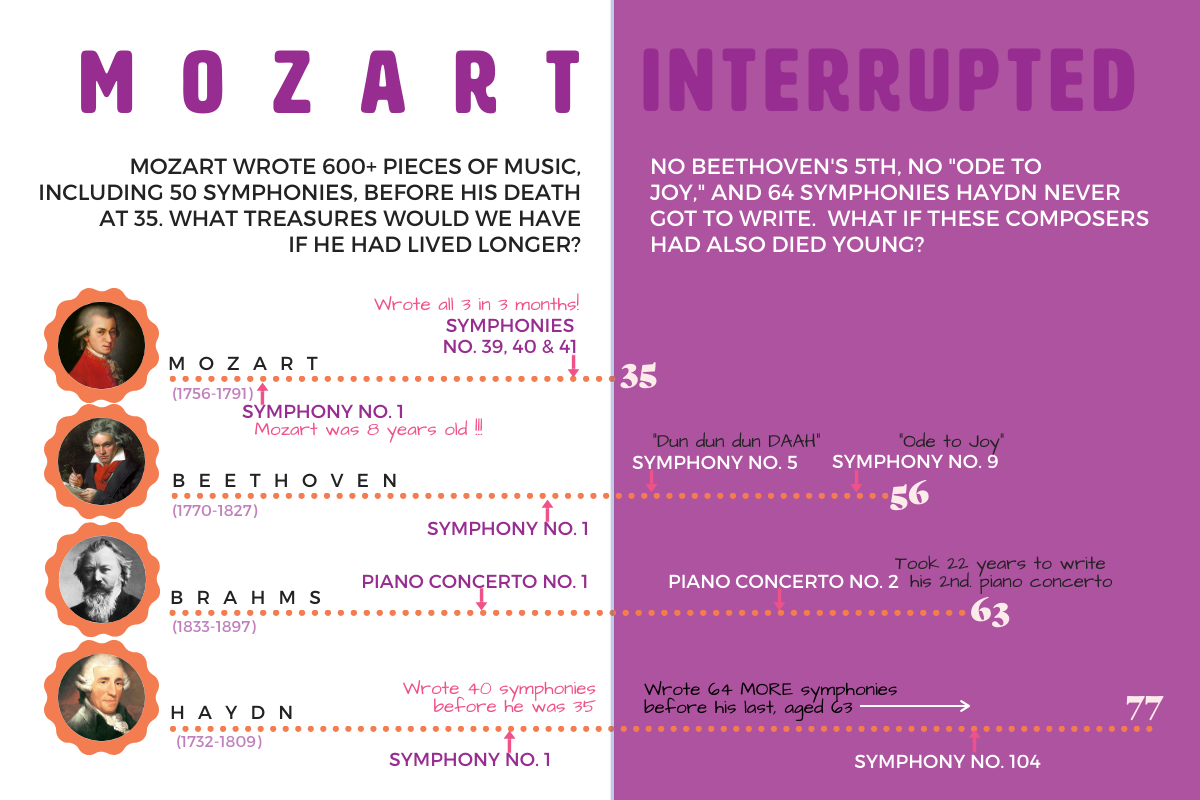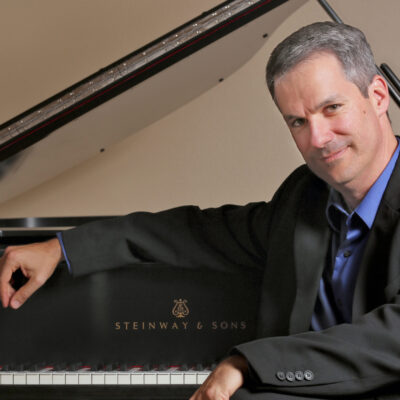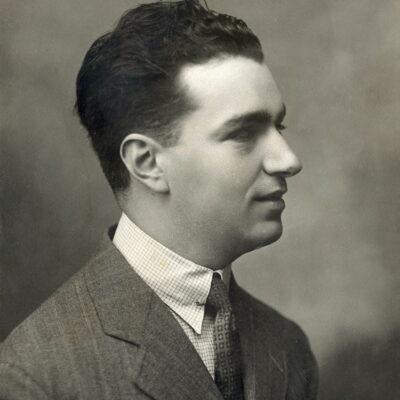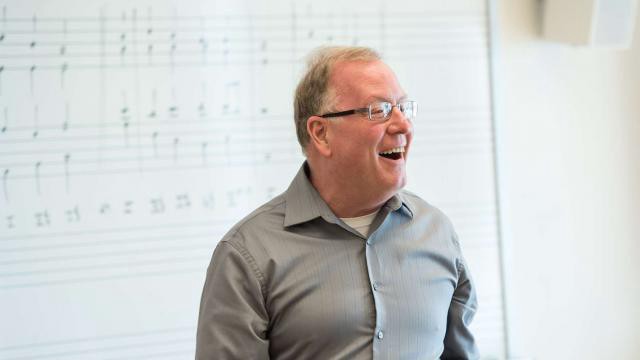 What additional treasures might exist had Mozart survived beyond 35? And what iconic works *wouldn’t* we have, if other great composers had died young like him?
What additional treasures might exist had Mozart survived beyond 35? And what iconic works *wouldn’t* we have, if other great composers had died young like him?
When I am… completely myself, entirely alone… or during the night when I cannot sleep, it is on such occasions that my ideas flow best and most abundantly. Whence and how these ideas come I know not nor can I force them.” —Wolfgang Amadeus Mozart

If Mozart is to be taken at his word, he must have lived much of his short life in sleepless but productive solitude. He composed over 600 musical works—including 21 stage and opera works, 15 masses, and over 50 symphonies—and he did all this in just half a lifetime.
As much wonderful music as Mozart left us, it is tantalizing to wonder what else he might have gone on to write, had he had a few more years. When Mozart died in 1791 at the age of 35 while writing his Requiem Mass, he was at the peak of his powers: He had finished three symphonies, two operas (including the much-loved Magic Flute), a clarinet concerto, a cantata and had about two-thirds of the Requiem completed.
What if he’d had another 30 years ahead of him? How many more operas, concerti and great symphonic works would he have delivered? How much further would he have advanced the forms?
Of course, we’ll never know the answer, but this started us thinking—possibly a little morbidly—about all the other great works that would not exist, had their composers also been struck down in their 30s.
Consider, for example, that Bruckner did not even complete his first symphony until he was 42; Beethoven wrote symphonies five through nine all after the age of 35, and prolific Haydn composed a mind-boggling 64 more symphonies after the age of 35, including favorites like Symphony No. 104, aka The London Symphony.
Here is a short list of monumental works that would never have been written had their composers perished like Mozart at the age of 35.
1. Beethoven’s Ninth Symphony
There would be no Ode to Joy since Beethoven composed his Ninth Symphony at the age of 54.
2. The Nutcracker Suite
There would be no sugar plum fairies dancing to music composed by Tchaikovsky at age 52.
3. The Messiah
The holidays just wouldn’t be the same without gems like For Unto Us a Child is Born and the Hallelujah Chorus, composed by Handel at age 56.
4. New World Symphony
Dvorak composed his Ninth Symphony, the New World, at the age of 52.
5. Wagner’s Ring Cycle
Not one single note of the stirring Ride of the Valkyries, composed as part of Wagner’s opera saga at the age of 61.
Posterity will not see such a talent again in 100 years.”—Haydn
We’ll never really know what the world lost when Wolfgang Amadeus Mozart died at just 35, working on the Requiem that was to become his own unfinished swan song, but it is astonishing to consider his achievements in the context of other composers’ bodies of work which were delivered in up to twice the time.
Mozart’s genius and his singular place among the greats is undeniable. Rather than dwell on the loss, perhaps a better course of action is to reflect on and appreciate the many glorious treasures he left behind? Here’s his final symphony, which is one of his most celebrated and frequently performed works.
Experience Mozart live in action at MOZART SERENITY, Saturday, February 1 at 7:30 p.m. and Sunday, February 2 at 4 p.m. at the Lesher Center for the Arts in Walnut Creek. Single tickets start at $50 and at $25 for students 25 and under, and include a free 30-minute pre-concert talk starting one hour before the performance. Buy tickets online or call or visit the Lesher Center Ticket Office at 925.943.7469, Wed – Sun, 12:00 noon to 6:00 p.m.



